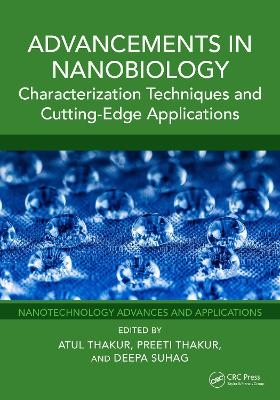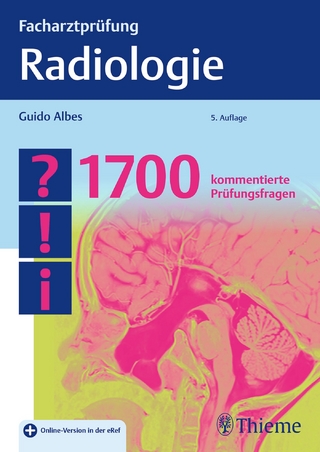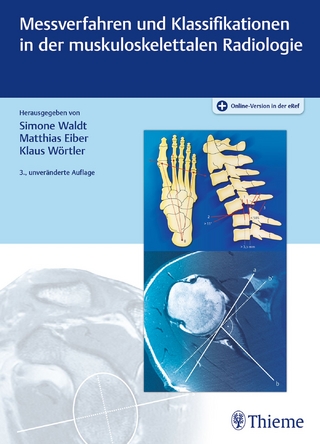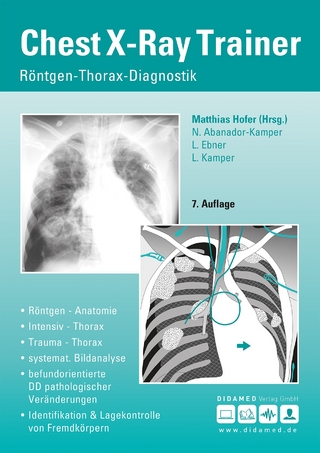
Advancements in Nanobiology
CRC Press (Verlag)
978-1-032-75049-1 (ISBN)
- Noch nicht erschienen (ca. Februar 2025)
- Versandkostenfrei innerhalb Deutschlands
- Auch auf Rechnung
- Verfügbarkeit in der Filiale vor Ort prüfen
- Artikel merken
This book presents the design, synthesis, characterization, and advanced applications of nanomaterials and nanodevices in biology and medicine. It begins with an introduction to nanobiology, providing readers with insights into the significance of this emerging field. The book covers methods for characterizing nanoparticles, including Fourier transform infrared spectroscopy (FTIR), scanning electron microscopy (SEM), transmission electron microscopy (TEM), atomic force microscopy (AFM), X-ray diffraction (XRD), and other spectroscopy techniques. It also explores the applications of nanoparticles in optical coherence tomography, biosensors, neuroscience, genetic engineering, and cell biology. It explores various applications of nanoparticles, including spectroscopy, Raman imaging, molecular nanodevices, bioimaging techniques, regenerative medicine, cancer research, bio-molecular analysis, nanofabrication, multi-modal imaging, and microfluidic platforms. Additionally, it addresses important considerations such as nanotoxicology and safety in nanobiology. The book concludes by discussing future perspectives and potential advancements in the field, making it a valuable resource for researchers, students, and professionals exploring the transformative impact of nanobiology on science and medicine.
Key Features:
· Covers fundamental concepts and advanced applications of nanomaterials and nanodevices in the fields of biology and medicine.
· Presents advanced nanoparticle characterization techniques, including FTIR, SEM, TEM, AFM, and XRD.
· Examines various biological applications of nanoparticles in diagnostics, neurobiology, genetic engineering, regenerative medicine, and cancer research.
· Emphasizes the role of nanoparticles in understanding biological processes at the molecular level and developing innovative solutions for biomedical applications.
· Provides insights into the toxicity issues and mechanisms underlying the toxicity of nanoparticles.
Dr. Atul Thakur is the Director of the Institute at Amity Centre for Nanotechnology, Amity University, Haryana, India. He earned his M.Phil. and Ph.D. degrees from Himachal Pradesh University, Shimla. With a prolific academic career, Dr. Thakur has authored over 190 research papers published in international, peer-reviewed, SCI, and Scopus-indexed journals. Following his Ph.D., Dr. Thakur secured a post-doctorate research position at the Electronics Department of the University of Brest, France, focusing on the size reduction of patch antennas. Subsequently, he was appointed as a post-doctorate at the prestigious Taiwan National University, where his research delved into high-density memory storage systems and devices. His extensive research portfolio encompasses various domains, including ferrites for microwave applications, high-frequency applications, RADAR-absorbing materials, water purification, antenna miniaturization, high-density memory storage systems, sensor applications, metamaterials, biomedical applications, and agricultural applications. Dr. Atul Thakur holds the credit for filing 50 patents to date. In addition to his research accomplishments, Dr. Thakur has delivered numerous invited talks at national and international conferences worldwide. He has successfully completed several government-funded projects sponsored by ANR, DRDO, MNRE, DAE, among others. Recently, Dr. Thakur achieved recognition by securing prestigious international grants from the Royal Academy of Engineering, UK. Currently, he serves as the Head of the Amity Centre for Nanotechnology and Amity School of Applied Sciences at Amity University, Haryana. Notably, Dr. Thakur has also taken the initiative to establish a startup, NanolatticeX. Prof. Preeti Thakur currently holds the position of Head, Department of Physics, at Amity School of Applied Sciences, Amity University, Haryana. A recipient of a post-doctorate from Taiwan and a gold medalist in Masters, she successfully completed her Ph.D. in Physics from Himachal Pradesh University, Shimla. With a remarkable career spanning over 20 years, she has amassed extensive teaching and research experience. Her research endeavors encompass the synthesis and characterization of magnetic nanoparticles for various applications, including radar-absorbing materials, sensors, high-frequency technologies, wastewater treatment, and biomedical and agricultural applications. Prof. Thakur boasts an impressive publication record, with over 160 articles featured in SCI/Scopus-indexed international journals. Additionally, she has filed 47 patents and actively contributes as a reviewer for international-indexed journals. Dr. Deepa Suhag serves as an assistant professor at the Amity Centre for Nanotechnology, Amity University, Haryana, India. She earned her Ph.D. from Amity University, Uttar Pradesh, Noida, in 2017. With an impressive academic background, she has authored 25 research articles published in prominent international journals and has successfully filed 6 patents, one of which has been granted under her name. Her expertise lies in the broad spectrum of biomaterial engineering, with a specific focus on wound healing and tissue regeneration. Dr. Suhag's contributions in these areas underscore her commitment to advancing knowledge and making impactful strides in the field of nanotechnology.
1. Introduction To Nanobiology 2. Characterization Methods in Nanobiology 3. Raman Imaging and Mapping in Nanobiology. 4. Molecular Nanodevices & Nanocarriers. 5. Nanoscale Biosensors for Diagnostics. 6 Nanoscale Approaches to Neurobiology. 7. Nanoscale Approaches to Genetic Engineering. 8. Nanoscale Approaches to Cell Biology. 9.Nanobiology of Infectious Diseases. 10. Nanobiology in Regenerative Medicine. 11. Bio-nanotechnology in Cancer Research. 12. Bio-Molecular Analysis at The Nanoscale. 13. Nanotechnology In Immunology. 14. Synthetic DNA and Programmable Genomes in Nanobiology. 15. Challenges in Scaling Nanobiology for Clinical Use. 16. Nanotoxicology and Safety Considerations 17. Future Perspectives of Nanobiology.
| Erscheint lt. Verlag | 7.2.2025 |
|---|---|
| Reihe/Serie | Nanotechnology Advances and Applications |
| Zusatzinfo | 6 Tables, black and white; 90 Line drawings, color; 1 Halftones, color; 91 Illustrations, color |
| Verlagsort | London |
| Sprache | englisch |
| Maße | 178 x 254 mm |
| Themenwelt | Medizin / Pharmazie ► Allgemeines / Lexika |
| Medizinische Fachgebiete ► Radiologie / Bildgebende Verfahren ► Radiologie | |
| Medizin / Pharmazie ► Physiotherapie / Ergotherapie ► Orthopädie | |
| Technik ► Medizintechnik | |
| Technik ► Umwelttechnik / Biotechnologie | |
| ISBN-10 | 1-032-75049-9 / 1032750499 |
| ISBN-13 | 978-1-032-75049-1 / 9781032750491 |
| Zustand | Neuware |
| Haben Sie eine Frage zum Produkt? |
aus dem Bereich


